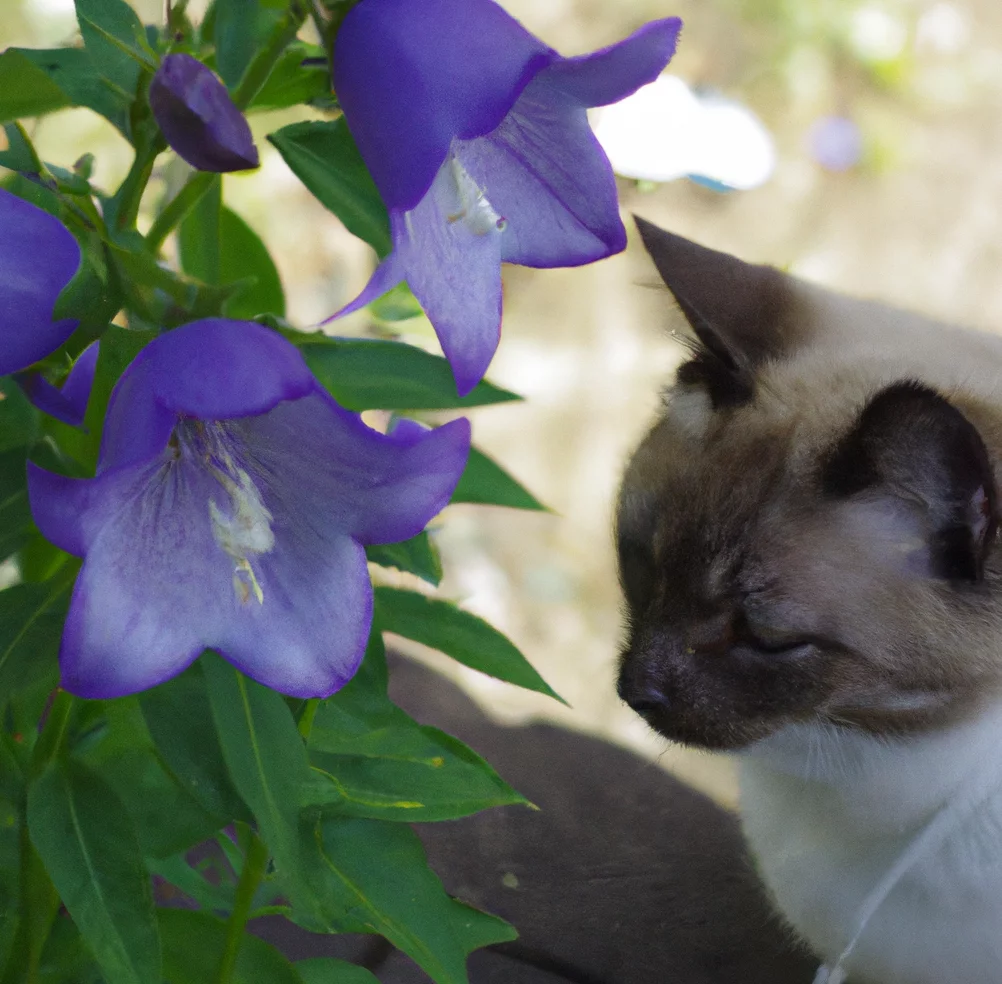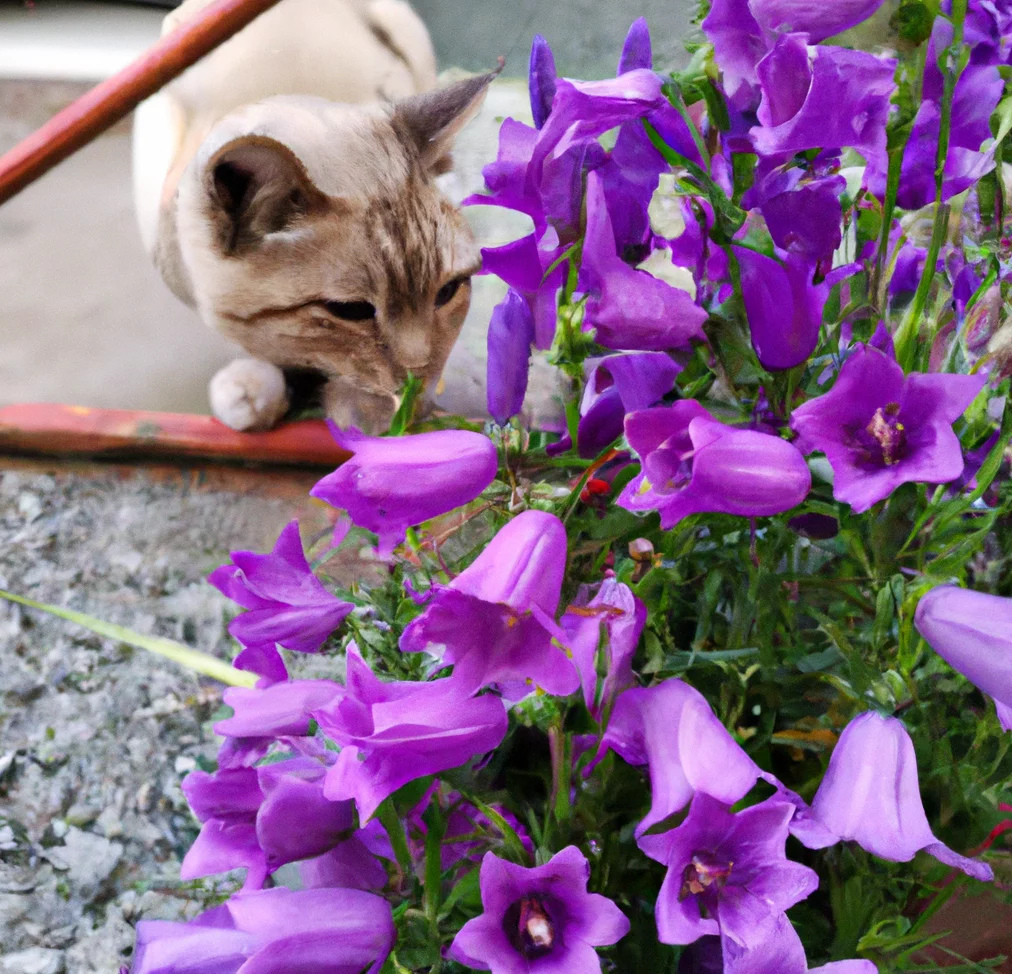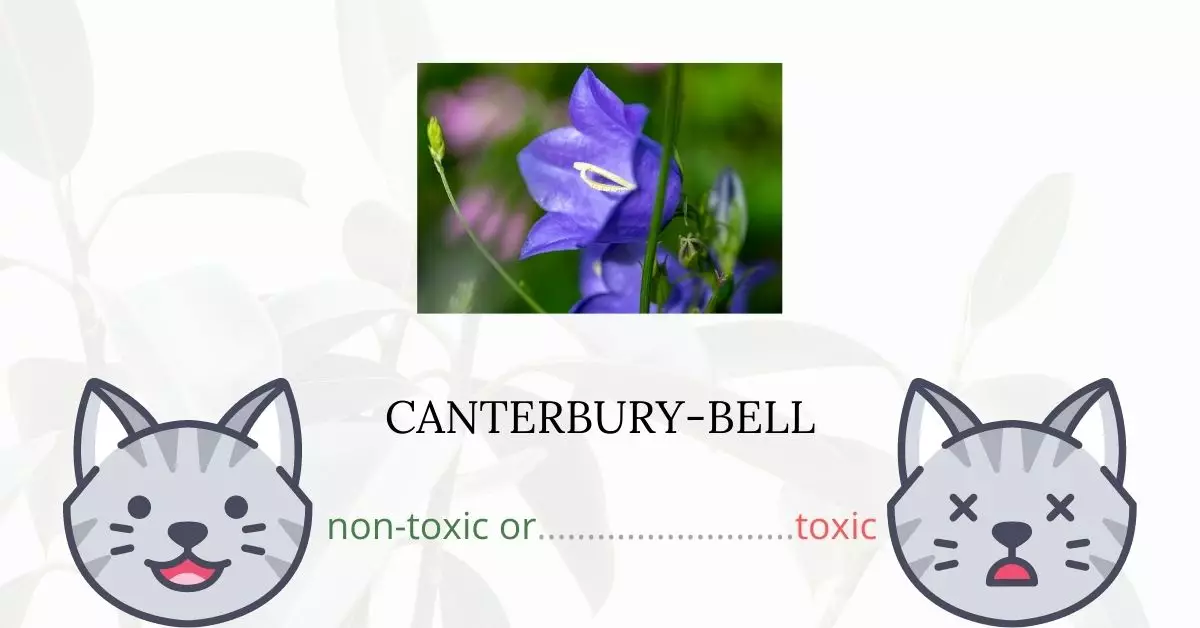Canterbury bells (Campanula medium) are generally considered non-toxic to cats. There is no substantial evidence to suggest that these plants pose any significant risk to our feline companions or to humans, making them a popular and safe choice for gardens frequented by pets or children. However, the question may arise—can cats safely consume Canterbury bells? We delve deeper below to provide you with comprehensive information on whether these beautiful blooms are safe for feline ingestion.
This article has been crafted in collaboration with a team of experienced Doctors of Veterinary Medicine (DVMs). Their invaluable insights and extensive knowledge allow us to offer accurate, reliable, and current information on the potential risks various plants, including the Canterbury-bell, may pose to cats. Additionally, we have conducted extensive research through high-authority websites such as the ASPCA and PetMD to ensure that every piece of information provided here is grounded in reputable sources and reflects the most recent findings in veterinary science. Our commitment is to empower pet owners with the knowledge they need to ensure the well-being and safety of their furry companions.
Can Cats Eat Canterbury-bell?

If your cat has nibbled or chewed a little amount of Canterbury bell, you need not be alarmed. There is no evidence that Canterbury bells are hazardous to people or pets.
Plants, on the other hand, should not be included in a cat’s diet. Because cats are carnivores, their bodies are not intended to absorb plant materials. A cat may grow unwell if he consumes too many plants. It can induce gastrointestinal problems and symptoms such as mild vomiting and diarrhea.
Therefore, you should not allow your cat to play with your Canterbury bells at home or outside.
What is Canterbury-bell?

Canterbury bells (Campanula medium), is an annual or biennial flowering plant of the genus Campanula, belonging to the family Campanulaceae.
Canterbury bells, which are supposed to be native to the Pyrenees, have been grown in various parts of Europe for a long time and adapt well to diverse climates. Their name is simple to comprehend because of their appearance.
These flowers are frequently misidentified as annuals, but when grown from seed, they are biennials, meaning they require a year to establish leaves before blooming the next year. After that, they’ll need to be replaced with new plants, however, plants can sometimes reseed themselves.
Keeping Cats Away From Canterbury-bell

Although the canterbury-bell is not very harmful, you do not want your cat to eat it or damage it. You may make the plant less tempting to your cat by making it less attractive to them. You can get natural pet repellants in pet supply stores or online.
Making loud noises or simply scolding your cat when they start scratching the plant is another approach to discourage them. Even if your cat isn’t damaging your houseplants, you should try to keep him or her busy to avoid boredom and trouble. It’s also good for your plants and your sanity to keep your cat stimulated.
Plants to Avoid For Your Cats
If you are a cat owner and unsure if the plants growing in your yard are harmful to your cats, check out this list of toxic plants for cats. You can also check our list of non-toxic plants for cats.





